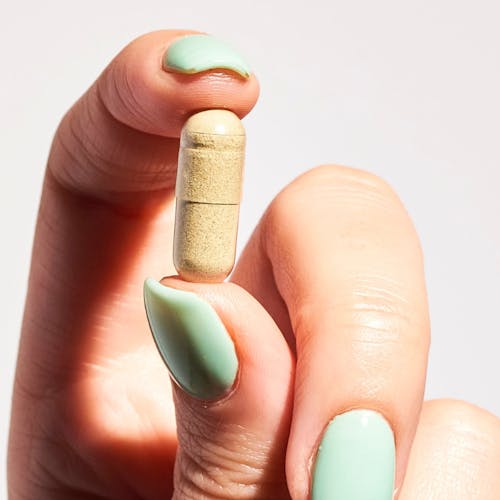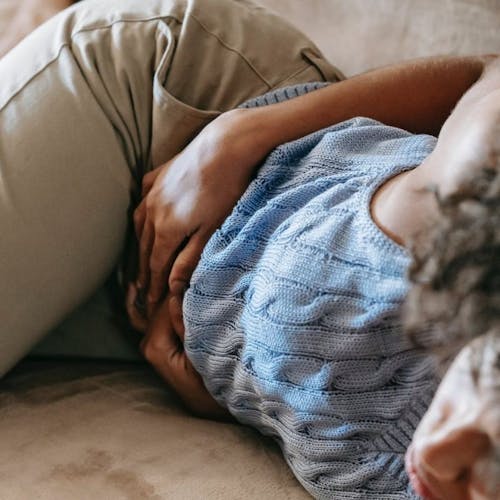This website uses cookies to enhance the user experience. By using Yoppie you are agreeing to our use of cookies.
How endometriosis and endometrial cancer are different, and the key things to watch for
Written by Yoppie
14 Jun 2022
What is endometriosis?
What is endometrial cancer?
Are the symptoms the same for both conditions?
What are my risk factors for each condition?
I have endometriosis… does this mean I’ll get endometrial cancer later?
While endometriosis is still seen as a bit mysterious, the ‘C’ word is well-known and tends to bring out our anxieties no matter the context. Endometrial cancer is a rarely mentioned and understandably worrying condition, so here’s everything you need to know about the difference between endometriosis and endometrial cancer, symptoms to look out for, and whether or not one leads to the other. Let’s take a look into that uterus of yours…
What is endometriosis?
Endometriosis is a condition where tissue similar to the kind lining the inside of the uterus grows outside, where it’s not supposed to - like the ovaries, fallopian tubes, pelvis and sometimes beyond. When you’re on your period and the endometrial tissue inside your uterus sheds (your bleed), the misplaced endometrial tissue in other areas of the body does the same, except it can’t go anywhere. This can hurt - sometimes a lot, depending on how much tissue there is.
Over time this tissue can become irritated and form scar tissue which causes organs inside the pelvis to stick together. Again… painful! It’s a serious condition, but it’s important to note it is most certainly not a type of cancer, and while painful, it is not seen as life threatening.
What is endometrial cancer?
Endometrial cancer is technically the most common type of uterine cancer, and is often put in this category. It’s a type of cancer that develops in the cells forming the inside lining of the uterus - but it’s very different from endometriosis.
For context, the uterus has two main layers; the myometrium is the outer layer (the thick, muscular part that helps push a baby out during labour) and the endometrium is the inner layer (the part that sheds each menstrual cycle and becomes your period). Endometrial cancer tends to develop on the inner layer - the endometrium.
Survival rates are generally positive for this type of cancer in the UK according to statistics. In stage 1, over 90% of people survive for 5 years or more after diagnosis, and endometrial cancer is often found at an early stage due to its symptoms.
Are the symptoms the same for both conditions?
Similar, but with some slight differences. Symptoms of endometriosis tend to include:
- Painful periods (known as dysmenorrhea) and cramps
- Pelvic pain before and during your period
- Pain during or after sex
- Pain during bowel movements or urination
- Heavy periods or bleeding between periods
- Fatigue
- Fertility issues
Symptoms of endometrial cancer include:
- Abnormal menstrual bleeding or discharge - over 90% of those diagnosed with endometrial cancer have this symptom
- Postmenopausal bleeding
- Painful or difficult urination
- Pain during sex
- Pelvic pain, or a mass that can be felt in the pelvis
- Weight loss is also a common sign of many cancers
You’ll notice many of the symptoms do overlap, but a key difference seems to be the age at which they occur, since those nearing menopause have a higher risk - it’s important to know your own risk factors.
What are my risk factors for each condition?
Studies say the risk for endometriosis goes up if you have family history of the condition, or you started your periods early as a pre-teen. Other factors can put you at greater risk, like never having given birth, short menstrual cycles (less than 27 days), particularly heavy periods, having higher levels of estrogen in your body, a low BMI, and more.
In the case of endometrial cancer, studies have found this to be much more common in those who have gone through menopause, and this is thought to be the main risk factor associated with the condition. Several other factors can increase risk, like obesity, having a family history of endometrial cancer, exposure to radiation, starting your period early as a pre-teen, and experiencing menopause particularly late in life, amongst others.
I have endometriosis… does this mean I’ll get endometrial cancer later?
Endometriosis, to be frank… sucks. It can be a horrible condition to live with if you experience a lot of pain, and it can impact life in a big way… BUT, it’s important to clarify those with endometriosis are not doomed to have endometrial cancer later in life. In fact there is very little correlation.
A 2017 review of several studies found a slightly increased risk of ovarian cancer in those with endometriosis, likely due to higher estrogen levels. Keep in mind although this type of cancer is more common in those with endometriosis, the overall lifetime risk of cancer is still very low in those with endometriosis - thought to be less than 1%.
I want to see a doctor about symptoms - how will they diagnose me?
For both conditions, your GP will probably ask about yours and your family’s medical history, and discuss your symptoms. If they suspect you have endometriosis (or in rare cases, endometrial cancer) they might do an X-ray, ultrasound, MRI or another scan to see what’s going on inside. In both cases, they may ask to do a biopsy to test a piece of the tissue and rule out endometrial cancer.
Remember, though these conditions show similar symptoms, speaking to your doctor about your risk factors and symptoms can help them build up a clearer picture of your health and diagnose you quickly and correctly, so you can get whatever treatment you need.
Got a question about either of these conditions? Chat in our Full Stop FB group or reach out to the team on IG at @itsyoppie - we’re always happy to help!
Don't forget that our personalised menstrual cycle subscription box can get organic tampons, endometriosis supplements and much more delivered easily and regularly through your letterbox, to give you just a bit more peace of mind each cycle.
Section jump
Back to top
Subscribe To Our Newsletter
YOPPIE





© 2025 Yoppie is a registered trademark of Phlo Technologies Ltd.
Yoppie's supplements are not a substitute for a varied diet and healthy lifestyle and are not intended to diagnose, treat, or cure any disease. If you are pregnant, breastfeeding, have a medical condition or are under medical supervision, please consult with your doctor before taking any of our products.








